Search Images
Browse Content (p. 1755)
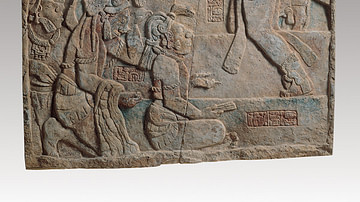
Image
Presentation of Captives to a Maya Ruler
This carved limestone relief, dated 23 August 783 CE, depicts three scribes being presented as prisoners to a Maya ruler. The captives are identified as scribes by the stick-bundle the first one holds (the traditional implements of scribes...
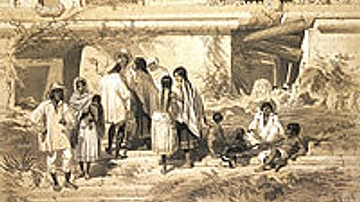
Image
The Nunnery Quadrangle at Uxmal by Catherwood
This lithograph from Frederick Catherwood's Views of Ancient Monuments in Central America, Chiapas and Yucatan depicts the so-called `Nunnery Quadrangle' at the city of Uxmal. The exterior and interior of the quadrangle are intricately and...
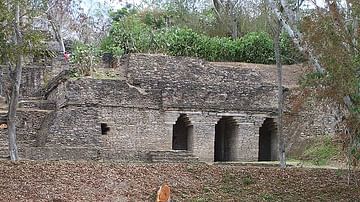
Image
The Passages to the Underworld at Tonina
This building at the Mayan site of Tonina is known as the Passage to the Underworld or the Temple of the Underworld. The archways in this picture lead to an extensive network of hallways which define the word `labyrinth'. As with many structures...
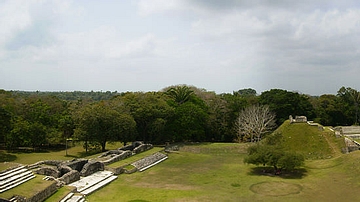
Image
Altun-Ha
Altun Ha is a Mayan site in modern day Belize. The city flourished between 400 and 900 CE but was occupied from 900 BCE to 1000 CE. The site was lost to the jungle until 1963 when excavations began
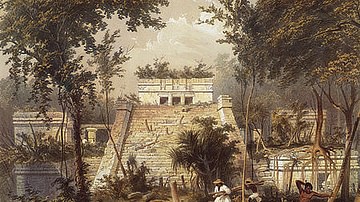
Image
Temple at Tulum by Catherwood
In the early 1840's Frederick Catherwood and John Lloyd Stephens extensively explored many of the ruined cities of the ancient Maya. Catherwood's drawings complemented Stephens' text in his best-selling books Incidents of Travel in Central...
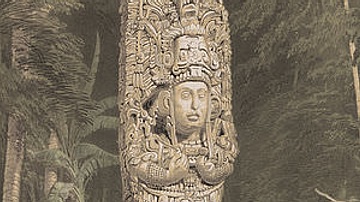
Image
Stela D at Copan by Catherwood
This lithograph of Stela D at Copan was done by Frederick Catherwood and first published in 1844 in his book, Views of Ancient Monuments in Central America, Chiapas and Yucatan. Like John Lloyd Stephens' works on the Maya, the book was very...
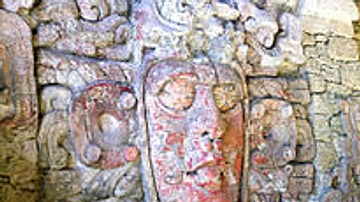
Image
Kinich Ahau at Kohunlich
This is the face of the sun god Kinich Ahau in The Temple of the Masks at Kohunlich. The masks all face west so that the setting sun illuminates them. It was thought that Kinich Ahau traveled down into and through the underworld at night...
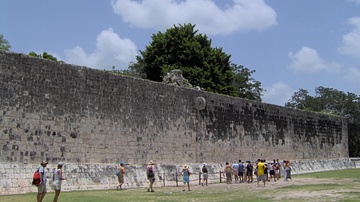
Image
The Grand Ball Court at Chichen Itza
This photo shows a stone scoring hoop high on the wall of the Great Ball Court at Chichen Itza. The opposing team's hoop is directly across from the wall in this picture. Players of the game Pok-a-Tok (considered a precursor to the modern...
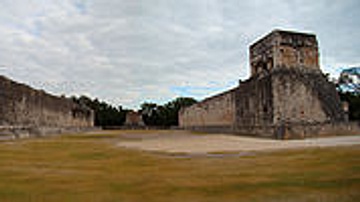
Image
The Great Ball Court at Chichen Itza
The Great Ball Court at Chichen Itza is the largest playing field in Mesoamerica. It measures 168 by 70 metres (551 by 230 feet) and the walls are 8 metres (26 feet) high. Here the game of Pok-a-Tok was played, the most popular and highly...
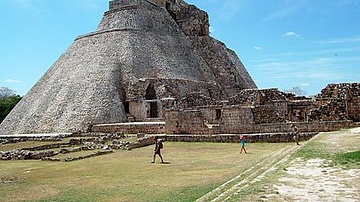
Image
The Pyramid of the Magician
The Pyramid of the Magician at Uxmal, Yucatan rises 115 feet with a base of 227 by 162 feet. It is also known as The Pyramid of the Dwarf and features in the popular Maya legend of the dwarf who became king. Uxmal (whose name means `thrice...